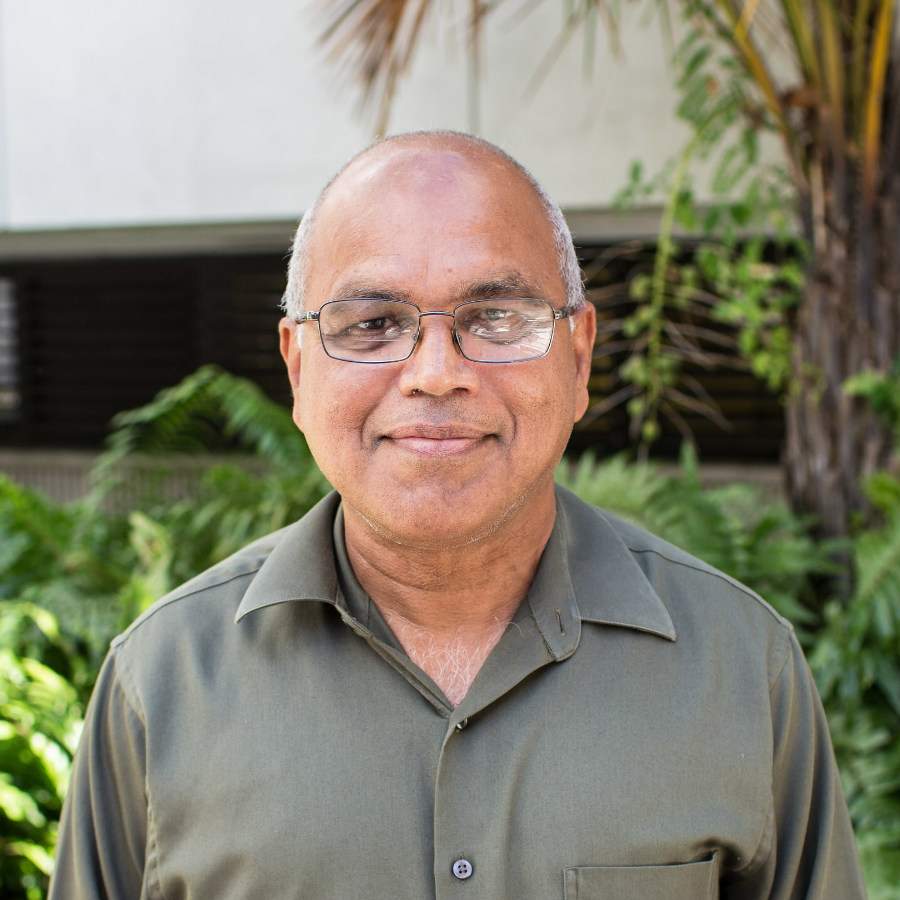Krishnaswamy Jayachandran is a Distinguished University Professor with the core expertise of environmental microbiology/soil science by training. He received PhD in Plant Pathology with a focus on Soil Microbiology from Kansas State University, MS in Agricultural Microbiology, and BS in Agricultural Sciences from Tamil Nadu Agricultural University. He worked as a Research Associate at International Crops Research Institute for the Semi-Arid Tropics before joining his PhD at K-State. He has co-founded the Agroecology Program through significant funding from USDA to promote education, research, training and outreach activities for students pipelining and capacity building. He enjoys teaching soils and ecosystems, advanced soil resources analysis, agroecology, soil microbiology, soil biology and ecology of South Florida. He has mentored over 300 undergraduate students promoting experiential and experimental learning activities and 75 MS and PhD students thesis and dissertation research in environmental, ecological, agricultural areas. He is the recipient of university teaching, research, mentoring, service, community engagement, Access & Equity, ASA Fellow, SoTL, Israel Science Fellow, and the Jefferson Science Fellow.
Research Areas
His research expertise is on studying soil physical, chemical and biological properties in relation to nutrient cycling and soil quality in wetland and upland systems. Utilizing microbiology as a central tool, he conducts research on microbial structural and functional diversity by traditional and molecular approaches, environmental influence on microbes structure and function, pesticides fate and transport, apply enrichment techniques to isolate and characterize pesticides degrading microbes, biodegradation processes in soil and water, regenerative agricultural practices such as vermicompost, biofertilizers studies.
For the past few years, his laboratory has been working on developing novel biological control strategies for the management of invasive exotic plant species in South Florida. In another novel project, we hypothesized to mitigate freshwater toxins as well as marine toxins by applying microbiological techniques. His group is also involved in biological energy production such as biodiesel and hydrogen through plants and microorganisms. His 40-years expertise on arbuscular mycorrhizal fungal symbiosis and plant growth promoting rhizobacteria, their interactions with plants (native, endangered, invasive, cover crops, crop), and significant role in conservation/restoration measures for natural and agricultural systems continues. Currently, biological control strategies for Citrus Greening and Laurel Wilt are devastating plant diseases causing damage to the Florida economy. Recently, he is collaborating with electrical and computer engineering faculty developing biodegradable sensors to monitor nitrogen and phosphorus towards precision agriculture technology.
